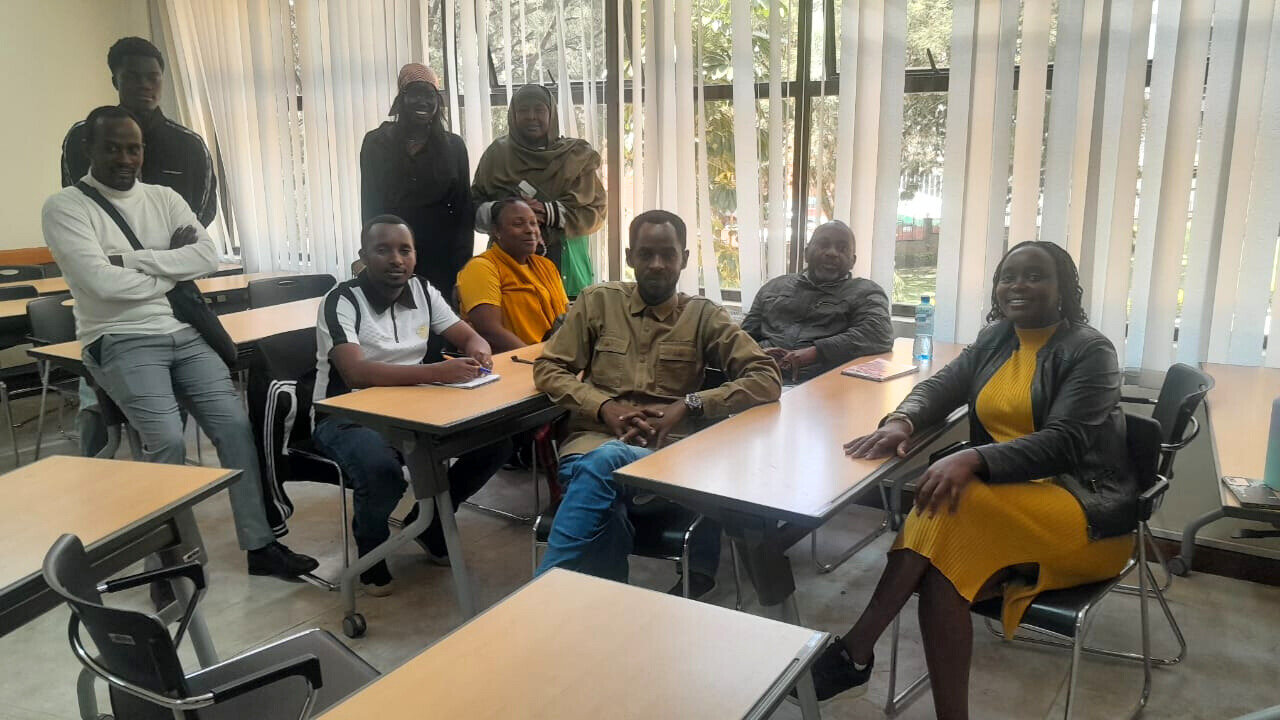Inspiring university engagement to scale access to higher education for refugees and contributing to the advancement of lasting peace
Moved by the appreciation of the Peace Leader programme (one of JWL’s most popular programmes worldwide), its impact, and recognising the needs of refugees in its vicinity, Hekima University College established a community learning centre to offer the Peace Leader programme to refugee youth on its premises in Nairobi.

“I have always wanted to be a leader and to lead people, but I did not have the right tools,” shared Ruba, a Peace Leader student in Kenya’s Kakuma Refugee Camp. “I wanted to be a part of the solution because in my community, many people are involved in conflict and they are not able to solve the conflict in the right way.”
Over 900 refugee learners across India, Iraq, Jordan, Kenya, Malawi, and Thailand have enrolled in the Peace Leader programme since 2019. This short-cycle tertiary programme, accredited by Hekima University College (Nairobi, Kenya), introduces participants to the role and practices of a peace leader, integrating selected good practices from peace and leadership studies and is designed around three core themes: self and cultural-awareness, conflict resolution and reconciliation, and servant leadership, and includes a practical component. Critically, it includes a practicum competent and, from the outset, encourages students to venture into and engage in peacebuilding activities in their communities.
Sadia now has both “the passion and tools” to take action and build peace in the community. She’s formed a youth dialogue group in her neighbourhood, which gathers to discuss peaceful ways to handle conflict, and she also mentors young women, teaching them that their voices matter and that they, too, can make a difference in addressing violence in the community:
“The Peace Leader programme is not all about theories. It is practical, whereby we go directly to the community and implement what we have learnt and it has actually taught us a lot. We are able to stand by ourselves, we have the confidence, we have the passion, to lead our people in a right way. Thank you.”
Jesuit Worldwide Learning partners with universities to provide learners in crisis-affected regions across the globe, including refugees, with transformative, accredited, and contextually relevant higher education opportunities. This strategic collaboration also aims to encourage university partners to engage further to scale access to higher education to more marginalised learners.
“Looking at the faces of refugees and listening to their stories, I understood that education to the people at the margins is one the key game-changers in their lives and probably one of the most compelling Jesuit apostolate in our time,” said Dr Elisee Rtuagambwa, SJ, Dean at Hekima Institute of Peace Studies and International Relations. Moved by the appreciation of the Peace Leader programme (one of JWL’s most popular programmes worldwide), its impact on forcibly displaced learners like Ruba, and recognising the needs of refugees in its vicinity, Hekima University College established a community learning centre to offer the Peace Leader programme to refugee youth on its premises in Nairobi.
“What started as an idea to reach the unreached refugees in urban centres is now a reality,” shared Nelly Kibet, Community Learning Centre Coordinator. Run in partnership with JWL, this learning centre enrolled 21 students in Spring 2025, and a second intake is expected in September 2025.
“By opening this centre in the urban area, you have given us hope and opportunity,” says Abulogn, among the first Peace Leader students in Nairobi. He’s originally from Gambella, Ethiopia, where conflict between Nuer and Anywaa communities has been perpetual. When heard about the Peace Leader programme, he recognised it as an opportunity to gain the knowledge and skills he could apply to “contribute to lasting peace.”
“This training has truly transformed my life,” he added, highlighting the change in how he perceives and approaches conflict and leadership. “I am determined to serve my community by initiating peace dialogues and mentorship programmes. I want to work closely with youth and vulnerable groups, while also fostering trust and unity among both refugees and host communities. Through these efforts, I believe positive change can take root and grow.”